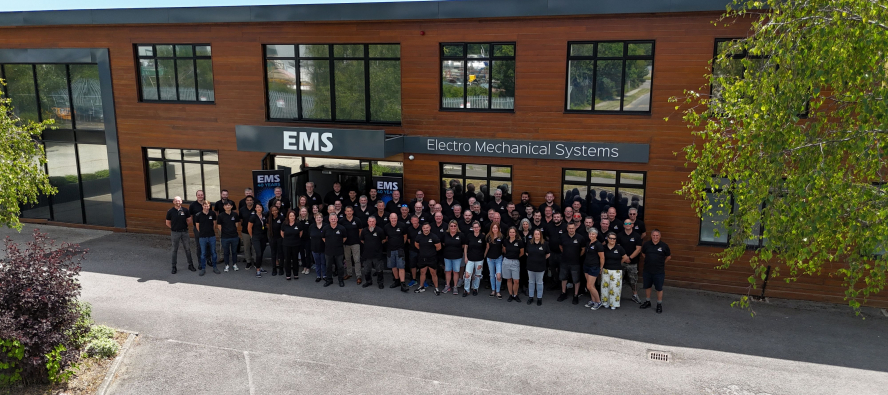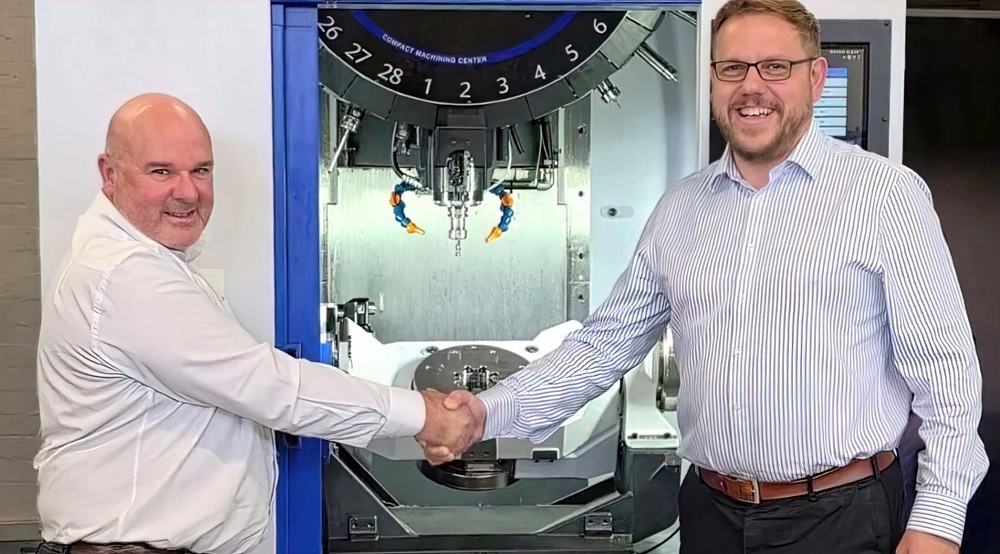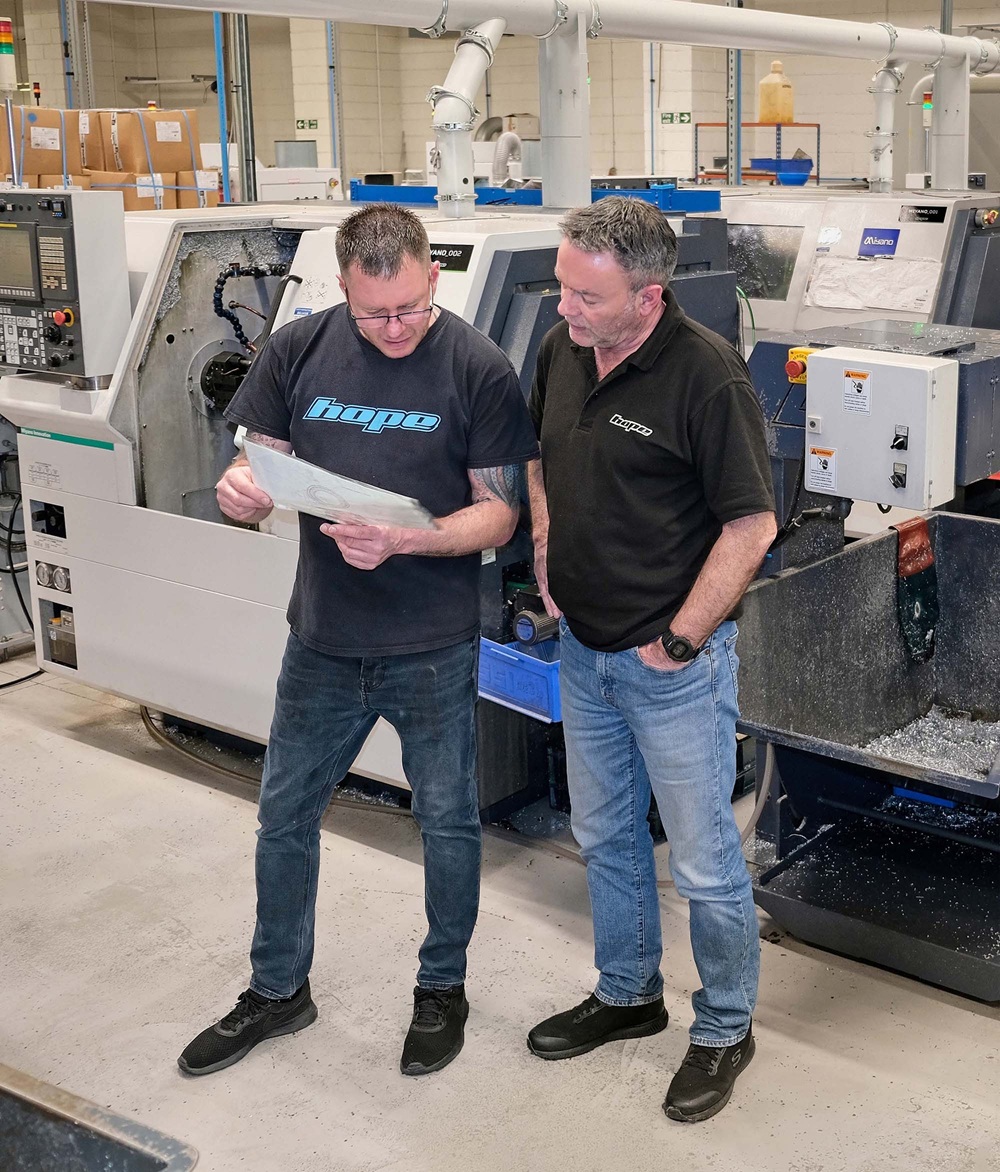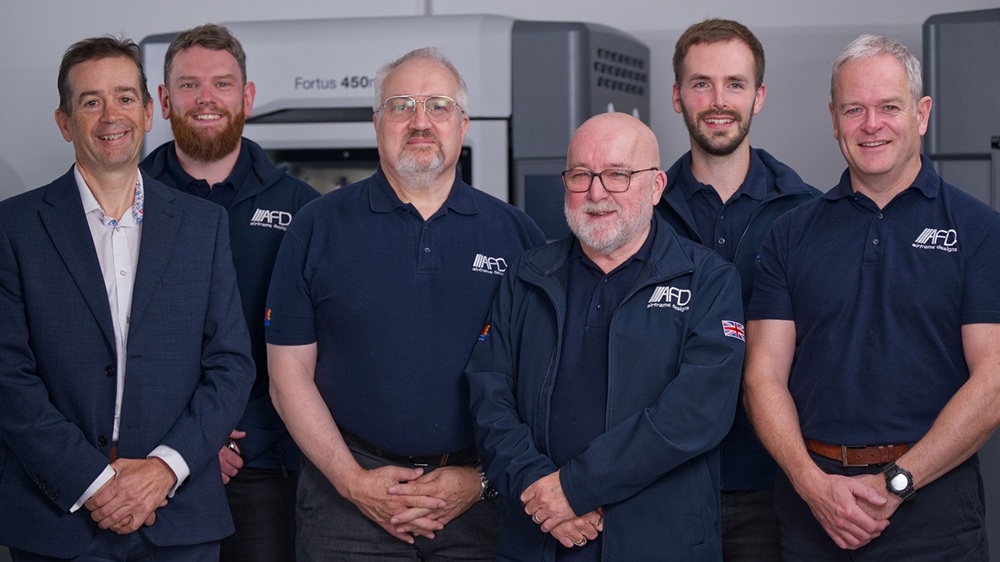In September 2024, a third-generation Cincom A20-VIILFV sliding-head turning and milling centre of 20 mm bar capacity was added to the small parts turning section at bicycle aftermarket components manufacturer, Hope Technology. Then in May this year, a 12 mm bar capacity Cincom L12-VIILFV arrived on the shop floor. Supplied by Citizen Machinery UK, the machines were respectively the eighth and ninth sliding-head lathes to be purchased from the Japanese machine builder’s UK subsidiary, or the previous sales and service agent NC Engineering, since 2004. In addition, from 2013 until now, seven Citizen Miyano fixed-head lathes have been supplied.
Based in Barnoldswick, Hope Technology employs around 150 people and exports half of its rapidly expanding portfolio of products to more than 40 countries. The highly successful British business, which was founded in 1989 by ex-Rolls-Royce aero engineers Ian Weatherill (now CEO) and the late Simon Sharp, was based on a quest to make mountain biking safer by developing and producing a disc brake as an alternative to less effective cantilever brakes.
The company produces 100% of its products in-house from quality materials – mainly aluminium bar, billet, sheet and forgings – plus stainless steel, brass and carbon fibre. Hope Technology not only machines everything in Barnoldswick to control precision and quality, but also heat treats, anodises, polishes and assembles on-site.
The third person to join the company, also in 1989 from the same aero engine manufacturer, was the current works and production manager Lindley Pate. His long-service record puts him in an ideal position to comment on the purchase and use of the more than 70 CNC machine tools currently in use at the factory.
He says: “We’re constantly buying machines to cope with the sheer volume of orders and the latest Cincom is no exception. When we opened our first factory in Nelson, we opted for another make of sliding-head lathe, three of which are still in occasional use. However, the mainstay of the Swiss turning section are the six 20 mm bar capacity models we sourced from Citizen, plus a 16 mm and a 32 mm model, and now the 12 mm sliding-head lathe. It was the speed of the machines and their ability to match our larger volume production needs that prompted the swap to this supplier.”
It is a similar story with the lathes in the larger bar-fed fixed-head turning section, which are up to 65 mm capacity. Between 2013 and 2020, seven Citizen Miyano turn-mill centres were installed, six of 42 mm capacity and one 51 mm lathe. The production of many parts within the capacity of these machines has been transferred from larger lathes to allow quicker cycles on the more suitably sized fixes-head models. One example is a bicycle rear cassette lock-ring made from 7075 aluminium, which is now produced in a significantly shorter cycle time on a Miyano.
Adds Pate: “As with all of the production plant we buy, it’s the level of service from the supplier, in this case Citizen, as well as the productivity of the machines that are paramount and lead to our repeat purchases of Cincom and Miyano lathes.”
An ability to maintain production output reliably around the clock is crucial for all plant at Barnoldswick in order to maintain global delivery schedules. Consequently, it has been decided to retrofit swarf conveyors to the two newest Cincom A20s, a move that will prevent aluminium swarf building up in the machining areas and allow long periods of lights-out running.
Citizen’s programmable LFV (low-frequency vibration) chip-breaking functionality in the control (fitted to the latest three A20s) helps in this regard. It ensures that swarf breaks into short chips that are easy to remove, rather than becoming ribbons that wrap around the component and tool. This scenario is avoided by switching on LFV during problematic sections of a cutting cycle. It means the lathe does not require stopping for the manual removal of tangled swarf, which would lead to lost production and possible damage to the machined part and/or the cutter.
Modern Cincom lathes have the additional advantage of removing the guide bush if it’s expedient to do so. While until now this option has rarely taken place at Barnoldswick, the supervisor in charge of the small parts turning section, Andy Savage, is intending to take advantage. It will save material cost when machining parts shorter than typically two and a half times their diameter, a geometry that does not deflect appreciably in the radial direction when the tool engages the bar with the guide bush absent. The benefit is two-fold: it allows extruded bar to be used, as on the fixed-head lathes, rather than more expensive drawn bar; and each bar remnant becomes two to three times shorter, saving a considerable amount of material.
Continual use is made by Hope Technology staff of Citizen Machinery’s Alkart Wizard software, which speeds CNC program preparation for both the Miyano and Cincom lathe models. It provides a user interface that simplifies complex tasks by breaking them down into a series of easy-to-follow steps. To assist in program development and reduce the potential for errors, Alkart Wizard incorporates a library of pre-defined machining processes and graphical diagrams. The software also allows users to save and reuse portions of CNC programs, helping to save time and increase efficiency.
“Tolerances held on our products are normally fairly open, but +0.01 mm has to be achieved on bearing diameters, a level of accuracy that is no problem for Citizen lathes,” concludes Pate. “Our continued purchase of these machines over a period of more than two decades is primarily down to their reliability, ensuring we can get product out of the door quickly to markets around the world.”
More information www.citizenmachinery.co.uk



















